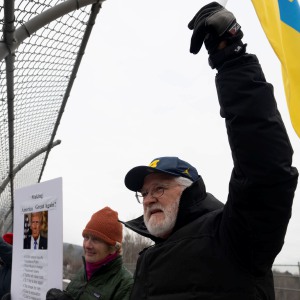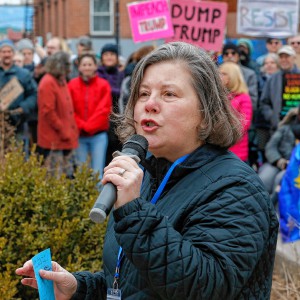Editorial: Trump’s EPA fails to protect
| Published: 07-05-2017 11:22 PM |
While President Donald Trump hasn’t made much of a mark on advancing a legislative agenda or reorienting most of the federal agencies reporting to him, one of his appointees has made breathtaking progress in reversing protections of the nation’s air, water and food supply.
Under the direction of former Oklahoma Attorney General Scott Pruitt, the Environmental Protection Agency has been racing to dismantle regulations such as ones that would require fuel companies to reduce leaks of greenhouse gasses, prevent spills and explosions at chemical plants, and ban a pesticide scientists say damages the nervous systems of children, the New York Times reports.
“Just the number of environmental rollbacks in this time frame is astounding,” Harvard environmental law professor Richard Lazarus said of the new EPA chief’s four months on the job. “Pruitt has come in with a real mission. He is much more organized, much more focused than the other cabinet-level officials who have not really taken charge of their agencies.”
A key part of Pruitt’s approach has been to bypass the career scientists and regulators who normally play a central role in environmental policy, regardless of which political party has named their boss. Those staffers — who would otherwise balance partisan excesses and help avoid regulatory whiplash for industries and those affected by them — say they have been largely cut out.
Instead, Pruitt has turned to advisors who are — to him — more familiar: Republican attorneys general who had earlier allied with him in suing the agency he now leaders, and industry representatives who have a vested interest in rolling back restrictions on the way they do business.
On March 9, for instance, Pruitt met the chief executive of Dow Chemical at an energy conference, the Times reports. On March 30, Pruitt reversed an Obama administration ban on chlorpyrifos, a pesticide the agency’s own scientists say causes developmental delays in children.
On March 22, Pruitt dined with 45 members of the board of directors of the American Petroleum Institute at Trump International Hotel in Washington. The group has been pushing to roll back rules on stemming methane leaks from oil wells, which could cost companies $170 million. On June 13, Pruitt filed a proposal to delay the regulations by two years, allowing time for them to be reworked.
“I have been consistently informed by multiple career people at EPA that Administrator Pruitt is not meeting with them ahead of making decisions like rolling back those major regulations,” said James J. Jones, who joined the agency during the administration of Republican icon Ronald Reagan and retired in January after leading the agency’s chemical regulation office. “It’s hard to imagine that you have all the relevant facts if you’re not meeting with people who have a greater depth of knowledge on these issues than almost anyone in the country.”
Article continues after...
Yesterday's Most Read Articles
 Local ‘Hands Off!’ standouts planned as part of national effort
Local ‘Hands Off!’ standouts planned as part of national effort
 Long-vacant former Faces spot in Northampton gets new tenant
Long-vacant former Faces spot in Northampton gets new tenant
 Here come the sweetness: Four new businesses prepping to open in downtown Northampton
Here come the sweetness: Four new businesses prepping to open in downtown Northampton
 State senators organize Trump defense: Comerford a leader on Response 2025 initiative
State senators organize Trump defense: Comerford a leader on Response 2025 initiative
 Five UMass Amherst students have visas, student status revoked
Five UMass Amherst students have visas, student status revoked
 Hatfield Select Board removes elected Housing Authority member
Hatfield Select Board removes elected Housing Authority member
Jones, whose tenure spanned Republican and Democratic administrations alike, makes a valid point. Valid, that is, unless Pruitt and his boss have as their agenda a rapid retreat from policies crafted over the EPA’s 47 years to protect and improve the air we breathe, water we drink and food we use to nourish ourselves, our children and the generations of Americans yet to be born.
It seems as if Pruitt and Trump want to change the P-word in EPA from “protection” to “plundering.” We can only hope that Massachusetts Congressional representatives will rally their colleagues to stand in opposition to the assault on protections, and that citizen activists — which is to say, all of us who care about the environment — will make their voices heard.
]]>






 Guest columnist Dr. Shelley Berkowitz: Single-payer health care just needs vote
Guest columnist Dr. Shelley Berkowitz: Single-payer health care just needs vote Guest columnist John Saveson: Use your spending power for the planet
Guest columnist John Saveson: Use your spending power for the planet Betty Ussach-Schwartz: The greatest grift of all
Betty Ussach-Schwartz: The greatest grift of all Jerry Halberstadt: Problems at Northampton Housing Authority seen in many housing programs
Jerry Halberstadt: Problems at Northampton Housing Authority seen in many housing programs
